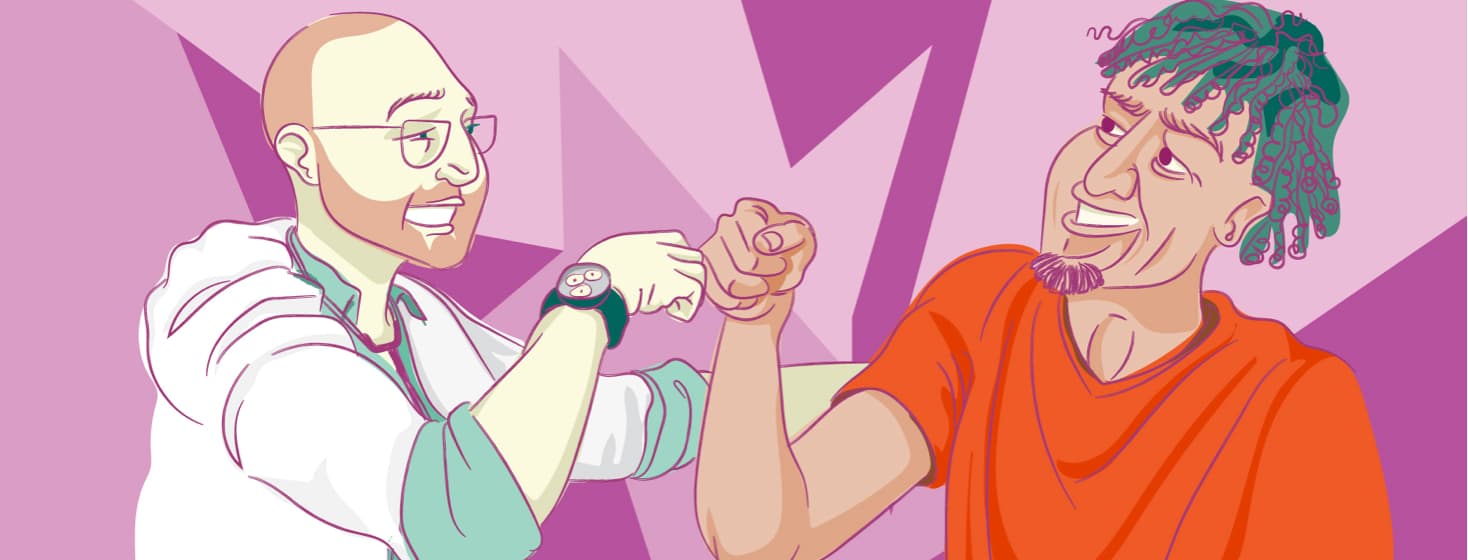Being Patient and Kind Towards Healthcare Providers
Editors Note: The opinions expressed in this article are those of the author.
Healthcare professionals undergo training to better deal with their patients; this includes learning to empathize and better understand and communicate with patients. For the most part, your health team is taking great strides and effort to ensure you are cared for appropriately.
However, there is often a lack of discussion of the inverse: how healthcare providers should be treated by their patients.
The relationship between healthcare providers and patients is not a one-way street; but rather requires empathy, understanding, and patience from both parties.
The effects of the pandemic on medical teams
It is no surprise that healthcare professional burnout has been rampant during the pandemic. In fact, some studies have indicated that 60% of healthcare workers are now experiencing severe exhaustion1.
Burnout is caused by significant staffing shortages, increasing demands within the workplace, and newer protocols that take up more time.
Observations of treatment of medical staff
I am a pharmacist. A number of my colleagues over the past couple of years have chosen to either retire early, take a leave of absence, or take on a part-time role instead.
Work demands have increased dramatically and combined with multiple sick leaves, pharmacies have been running short.
At the start of the pandemic, people rushed to their balconies to bang pots and pans to support healthcare heroes. Today, many healthcare workers are being verbally abused by patients.
It has gotten so bad that many workplaces have had to put “be kind” stickers in consultation booths.
Unfortunately, I have witnessed this occurring several times, to myself, and my fellow colleagues. The slower service has undeniably caused some patients to become upset, and they are lashing out their frustration.
What you can do to help healthcare workers
Healthcare burnout not only affects workers; the effect trickles down to you as well. Burnout usually translates to less quality care.
While you cannot control how other people react, there are a few things that are within your control:
- Be organized: Don’t wait until the very last minute to order medications, book an appointment, etc. Due to the labor shortages, providing ample time for services can help minimize frustration for everyone.
- Be thoughtful: Recognize that your healthcare provider is busy and some questions are not necessarily within their scope. For example, it may not make the most sense to ask your pharmacist where the toilet paper is located in the store. Your team wants to help, but cannot when they are being pulled from every direction.
- Be understanding: If there is a service that you expected to occur but did not, lashing out at the person will not help you get that service quicker. On the contrary, patients who are kind and understanding are often serviced faster than those who are belligerent and rude.
- Do not take it personally: Your healthcare provider may be short and curt with you, but that typically has nothing to do with you.
Thank you to the understanding patients
The above is certainly not representative of all patients. So many patients have been kind, understanding, and show gratitude during this time.
If you are one of those people - thank you!
Have you noticed others being discourteous towards their healthcare providers throughout the pandemic? Share your experiences below!

Join the conversation